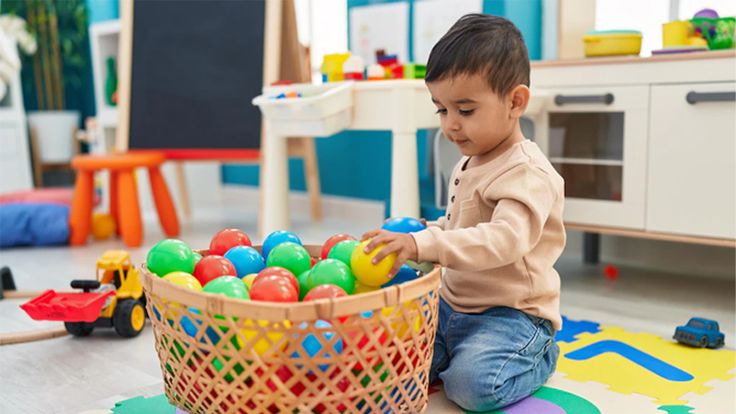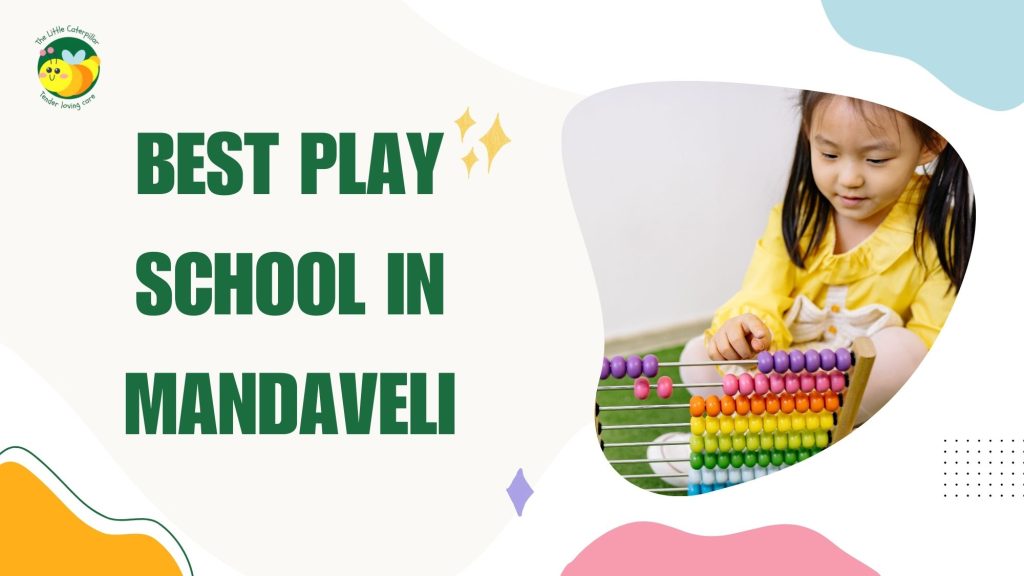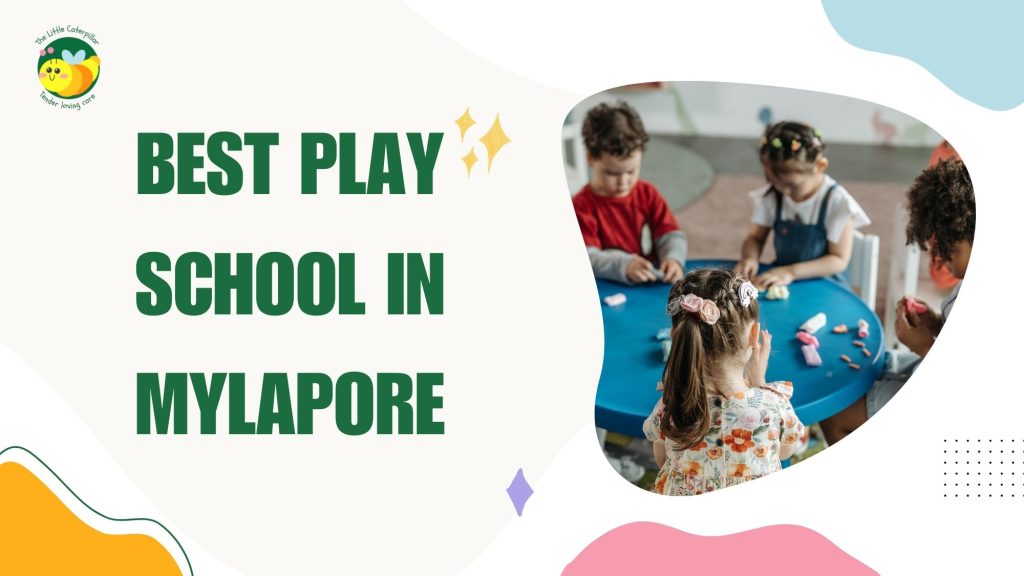Table of Contents
Introduction
Little Caterpillar in Chennai embraces the Montessori and Reggio Emilia educational philosophies, enriched with Indian cultural heritage. Central to these approaches is the recognition of nature as a fundamental teacher, offering endless opportunities for exploration, discovery, and learning. This essay explores the importance of outdoor and nature-based activities in early childhood education, drawing insights from Montessori and Reggio Emilia philosophies, and examines how Little Caterpillar integrates these principles to enrich children’s educational experiences.
The Importance of Nature in Learning
Nature plays a pivotal role in children’s development across cognitive, physical, emotional, and social domains. Both Montessori and Reggio Emilia philosophies recognize the profound impact of nature on children’s learning and advocate for meaningful interactions with the natural world. Key benefits include:
- Cognitive Development: Outdoor experiences stimulate curiosity, problem-solving skills, and scientific inquiry as children explore natural phenomena and ecosystems.
- Physical Health: Outdoor play promotes physical fitness, gross motor skills development, and sensory exploration through varied terrains and natural elements.
- Emotional Well-being: Nature provides a calming and nurturing environment that supports emotional regulation, reduces stress, and enhances overall well-being.
- Social Skills: Collaborative nature-based activities encourage teamwork, communication, and cooperation among children, fostering positive social interactions.
Integration of Nature in Montessori and Reggio Emilia Philosophies
Montessori Approach:
- Outdoor Classrooms: Maria Montessori emphasized the importance of outdoor environments as extensions of the indoor classroom. Outdoor spaces are carefully designed to facilitate independent exploration, sensory experiences, and connection with nature.
- Nature Walks and Observation: Children engage in nature walks, observing plants, animals, and natural phenomena. These experiences cultivate a sense of wonder, respect for the environment, and scientific inquiry skills.
Reggio Emilia Approach:
- Natural Materials: The Reggio Emilia philosophy values the use of natural materials in learning environments. Children are encouraged to interact with natural materials such as leaves, stones, and water, fostering creativity and aesthetic appreciation.
- Outdoor Ateliers: Outdoor spaces serve as ateliers (studios) where children engage in open-ended art, construction, and sensory activities inspired by nature. These activities encourage experimentation, expression, and exploration of natural elements.
Implementation at Little Caterpillar, Chennai
Little Caterpillar integrates the principles of Montessori and Reggio Emilia with Indian cultural heritage to create a nurturing environment where nature-based activities are central to children’s learning experiences. Key initiatives include:
Nature Exploration and Discovery:
- Outdoor Classroom: Little Caterpillar features an outdoor classroom designed to mirror the indoor environment, with natural materials, child-sized furniture, and designated learning zones for sensory exploration, gardening, and imaginative play.
- Nature Walks and Gardening: Children participate in regular nature walks within the school grounds and community parks. They engage in gardening activities, planting and caring for vegetables, herbs, and flowers, learning about plant life cycles and environmental stewardship.
Art and Creativity Inspired by Nature:
- Nature-Inspired Art: Children create art using natural materials such as leaves, petals, and seeds. They explore textures, colors, and patterns found in nature, fostering creativity, fine motor skills, and aesthetic appreciation.
- Outdoor Ateliers: Outdoor spaces serve as ateliers where children engage in open-ended activities such as painting, sculpting with clay, and constructing with natural materials. These activities encourage artistic expression and experimentation.
Sensory Experiences and Scientific Inquiry:
- Exploration of Natural Phenomena: Children observe changes in weather, seasons, and natural habitats, fostering curiosity and scientific inquiry. They investigate animal tracks, bird nests, and insect life cycles, developing observational skills and understanding ecological concepts.
Physical Health and Well-being:
- Outdoor Play and Physical Activities: Children engage in active play, climbing, balancing, and exploring natural playground structures. Outdoor spaces provide opportunities for physical exercise, gross motor development, and sensory integration.
Benefits and Outcomes
The integration of outdoor and nature-based activities at Little Caterpillar yields numerous benefits for children:
- Holistic Development: Children develop physically, intellectually, emotionally, and socially through rich, multisensory experiences in nature.
- Environmental Awareness: Hands-on interactions with nature instill a sense of respect for the environment, ecological responsibility, and sustainable practices.
- Creativity and Imagination: Nature-based activities stimulate creativity, imagination, and problem-solving skills as children explore natural materials and phenomena.
- Community Engagement: Collaborative nature-based projects foster connections with peers, educators, and the local community, promoting a sense of belonging and social responsibility.
Supporting Parents in Embracing Nature-Based Learning
Little Caterpillar supports parents through parenting panel discussions, workshops, and resources that emphasize the importance of nature-based learning. These initiatives provide guidance on incorporating outdoor activities, nature walks, and gardening into family routines, enhancing children’s learning experiences beyond the classroom.
Conclusion
Nature-based activities play a vital role in nurturing children’s development and learning experiences at Little Caterpillar, Chennai. By integrating Montessori and Reggio Emilia philosophies with Indian cultural heritage, the school creates an enriching environment where children explore, discover, and connect with nature in meaningful ways. Through outdoor classrooms, nature walks, art ateliers, and sensory exploration, Little Caterpillar fosters holistic child development, environmental stewardship, and a lifelong love for learning rooted in appreciation for the natural world.
References
- Montessori, Maria. The Absorbent Mind. Clio Press, 1995.
- Edwards, Carolyn, et al. The Hundred Languages of Children: The Reggio Emilia Approach to Early Childhood Education. Praeger, 1998.
- Sobel, David. Children and Nature: Design Principles for Educators. Stenhouse Publishers, 2008.
- Chawla, Louise. Growing Up in an Urbanizing World. Routledge, 2018.



